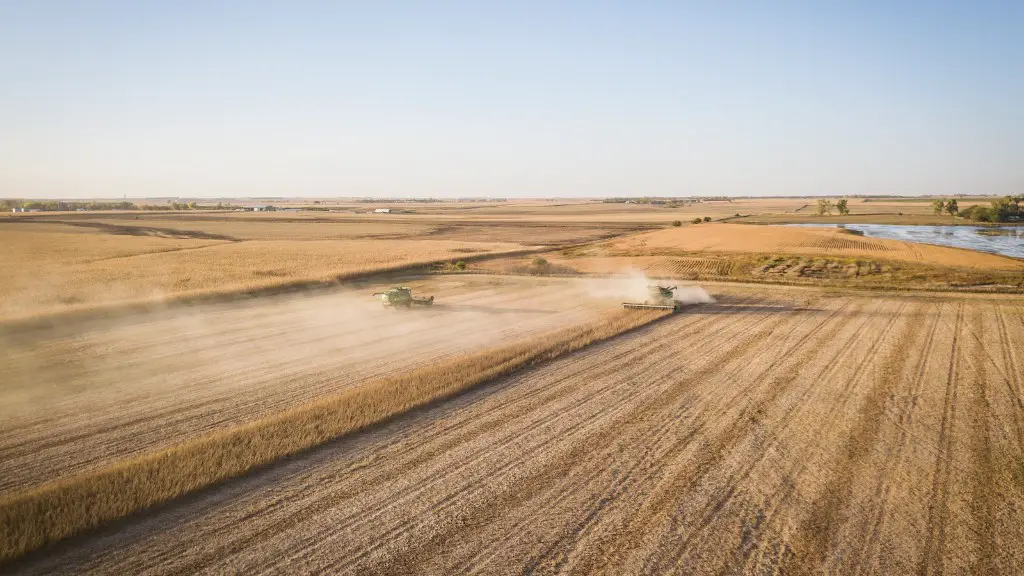What does it take to be successful in agriculture? In order to be successful, you must have a sound business plan and understand the markets in which you’re operating. You should also be well-versed in agricultural practices such as land management, crop rotation, and pest control. Above all, you need to maximize efficiency and profitability while having a keen eye on the overall health of your land and the environment. Here are seven key points to becoming a successful agricultural entrepreneur.
1. Have a Comprehensive Business Plan
A thorough business plan is the foundation for any successful business venture, which holds true for agriculture. Your business plan should include a detailed market analysis, cost assessment and competitiveness reviews. Additionally, it’s important to be aware and prepared for any risks and potential challenges to be encountered. With a solid business plan, you’ll gain a much clearer vision of your goals and objectives.
2. Establish a Team of Experts
No matter the size of your venture, having a dream team of experts gives you the greatest chance of success. This could include an agricultural specialist, a marketing and sales expert, an accounting or finance officer, or a supply chain analyst. Put together a well-rounded team to have the best possible vision and execution plan.
3. Harness the Power of Local Resources
Exploring local resources such as grants, tax incentives, and subsidies can give you an edge in boosting profitability. Many regions, especially rural areas, offer highly profitable agricultural incentives. Take advantage of these benefits to reduce your overhead costs and maximize profits.
4. Maximize Your Efficiency
Maximizing your efficiency means minimizing your costs. This requires carefully thinking through processes, such as water management and crop rotation, to use the least amount of resources while achieving the greatest yields. Use modern technology to compare different agricultural practices and find the most efficient solutions.
5. Be Attentive to the Environment
Agricultural practices should always be conducted in a sustainable and mindful manner. Research eco-friendly, organic solutions such as all-natural pesticides, improved irrigation and crop rotation strategy. These solutions will not only benefit the environment but may also provide higher yields, lower costs, and better efficiency.
6. Stay Informed on Developments in Your Industry
Knowing the trends and latest developments in the agricultural industry helps you stay ahead of the competition. Subscribe to pertinent newsletters and magazines and get to know the latest trends in crop yields, land management, pest control, and technology. This knowledge can save you time and money and provide valuable insights.
7. Invest in the Right Equipment and Training
Investing in the right equipment, such as tractors and harvesters, can prevent your farming operation from significantly falling behind. To get the most out of your equipment, proper maintenance and training are essential. Be sure to invest in reliable equipment and staff training to get the highest return on investment.
8. Invest in the Latest Technologies
Agricultural technology is rapidly advancing and investing in the latest technologies can make farming operations more efficient and significantly increase yields. Invest in high-tech solutions such as automated irrigation systems and drones for crop monitoring. Experiment with different technologies and consider the cost-benefit of each system. If the cost of implementation is manageable, you can reap the rewards.
9. Build Strategic Partnerships
Building strategic partnerships can help you get the resources you need from the people who are most knowledgeable and experienced. Connecting with agricultural suppliers, consultants, and other professionals in the industry will give you necessary guidance and advice as you grow your business. Establishing strong relationships with people within the industry can help you overcome any bumps in the road.
10. Develop a Marketing Strategy
Developing a comprehensive marketing strategy is key to gaining visibility in newly penetrated markets. Invest in effective advertising and promotional activities to open up new channels of distribution. Utilize social media, digital marketing and traditional channels to get the word out and tell your story. Keep in mind, marketing is not always about pushing products but also creating relationships.


